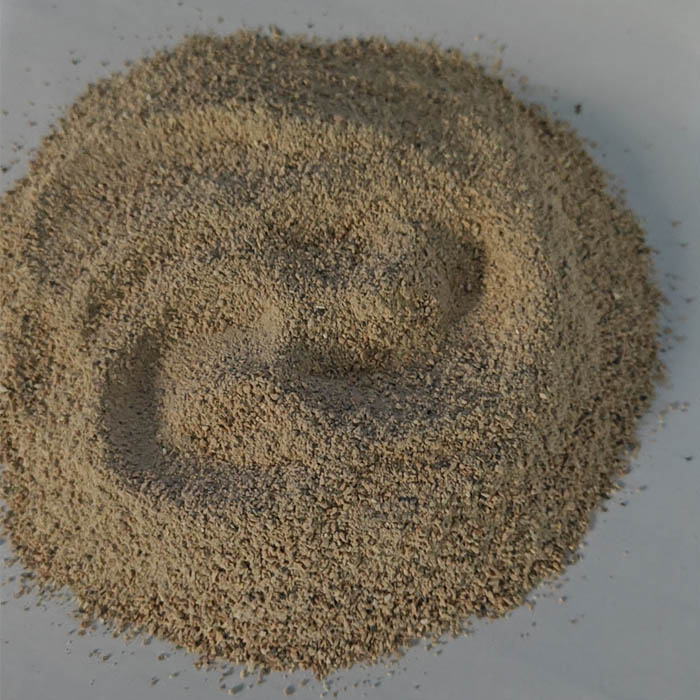Dec . 04, 2024 15:52 Back to list
graphitized petroleum coke manufacturer
Graphitized Petroleum Coke Manufacturer Enhancing Industries with High-Quality Carbon Products
In today's industrial landscape, the demand for high-quality carbon materials is on the rise, driven by industries ranging from aluminum production to battery manufacturing. One of the standout materials in this domain is graphitized petroleum coke (GPC), which is known for its exceptional properties and versatile applications. This article explores the significance of graphitized petroleum coke, the manufacturing process, and the advantages of sourcing from a reliable GPC manufacturer.
Understanding Graphitized Petroleum Coke
Graphitized petroleum coke is a form of carbon derived from the thermal treatment of petroleum coke. Unlike regular petroleum coke, which has a lower carbon content and increased impurities, graphitized petroleum coke undergoes a high-temperature graphitization process that transforms it into a pure, crystalline structure. This transformation improves its electrical conductivity, reduces its reactivity, and enhances its stability under extreme conditions, making it ideal for a variety of industrial applications.
The Manufacturing Process
The production of high-quality graphitized petroleum coke involves several critical stages
1. Raw Material Selection The process begins with the careful selection of petroleum coke, which is obtained from the coking process in oil refineries. The quality of the petroleum coke is paramount, as impurities can lead to lower-grade GPC.
2. Calcination The selected petroleum coke undergoes calcination, where it is heated at high temperatures in an inert atmosphere. This process drives off volatile impurities and increases the carbon content, producing a material suitable for graphitization.
3. Graphitization The calcined petroleum coke is then subjected to even higher temperatures, typically above 2500°C, in a specialized furnace. This high-temperature treatment allows the carbon atoms to rearrange themselves into a more ordered, graphitic structure, resulting in the final product—graphitized petroleum coke.
4. Quality Control After production, the GPC undergoes rigorous quality control testing to ensure that it meets the required specifications. Parameters such as purity, particle size distribution, and electrical conductivity are assessed to ensure the product's suitability for various applications.
Applications of Graphitized Petroleum Coke
The unique properties of graphitized petroleum coke make it invaluable across multiple industries
graphitized petroleum coke manufacturer

1. Aluminum Production GPC is widely used in the production of aluminum as a carbon additive in the reduction process. Its high conductivity and low reactivity make it an ideal choice for anodes, which are crucial for efficient aluminum electrolysis.
2. Battery Manufacturing In the burgeoning battery industry, especially with the rise of electric vehicles (EVs), GPC finds application as an additive in lithium-ion batteries. It enhances electrical conductivity, improving battery performance and longevity.
3. Steel Production GPC is used in the steelmaking process as a recarburizer, aiding in the control of carbon levels in steel and thereby improving its overall properties.
4. Foundries The foundry industry uses GPC as an additive in foundry sands and cores, leveraging its thermal stability and low porosity to enhance the quality of castings.
Choosing the Right Manufacturer
With the increasing need for graphitized petroleum coke, selecting a reputable GPC manufacturer is crucial. Key factors to consider include
- Quality Assurance Ensure the manufacturer adheres to stringent quality control standards, including certifications that validate the quality of their products.
- Technical Expertise An established manufacturer should have a deep understanding of the graphitization process and the ability to customize products to meet specific customer requirements.
- Sustainability Practices In an era of heightened environmental awareness, prefer manufacturers that employ sustainable practices in their production processes.
- Customer Support A good manufacturer should provide excellent customer service, offering technical support and guidance regarding the application of their products.
Conclusion
Graphitized petroleum coke is a critical material that propels various industries forward, offering superior performance and reliability. As the demand for innovative carbon products continues to grow, partnering with a trusted GPC manufacturer becomes imperative for companies looking to maintain a competitive edge. By emphasizing quality, expertise, and customer service, manufacturers of graphitized petroleum coke play a vital role in supporting industrial advancement and sustainability initiatives across the globe.
-
High Purity Graphitized Petroleum Coke & Low Nitrogen Recarburiser
NewsAug.26,2025
-
Fe-C Composite Pellets for BOF: Enhance Efficiency, Lower Steelmaking Costs
NewsAug.25,2025
-
Durable Building Material for Round Wall Exporters | Custom Shapes
NewsAug.24,2025
-
Tundish Dry Vibrator: Boost Steel Casting Performance
NewsAug.23,2025
-
Thermal Insulation Cups Materials Exporters - Quality & Durable Supplies
NewsAug.22,2025
-
High-Purity Graphitized Petroleum Coke & Low Nitrogen Recarburiser
NewsAug.21,2025
